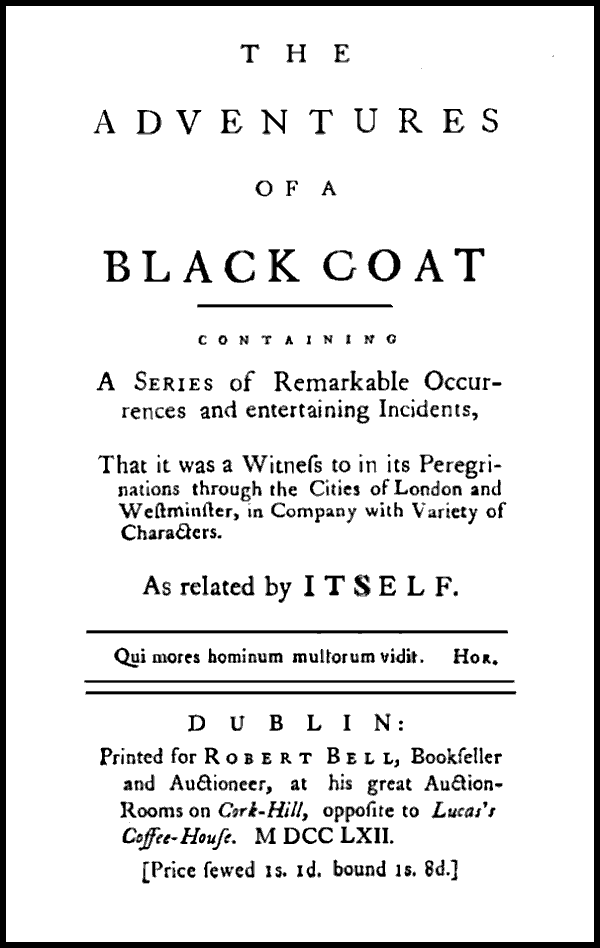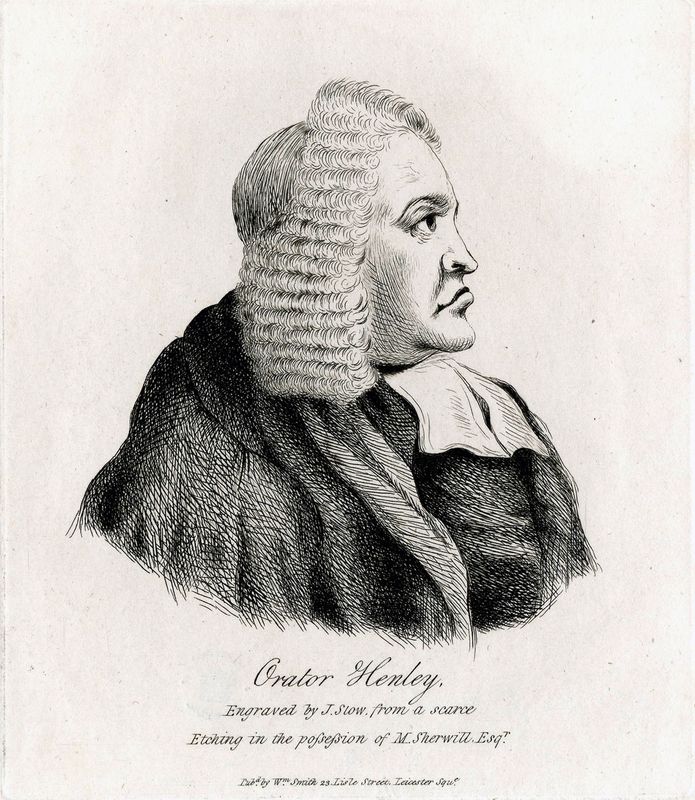The Comical Pilgrim: or Travels of a Cynic Philosopher is an anonymous book from 1722.
One of the things I love about the title pages of earlier books is the printing information on them. Sometimes they’ll tell you the exact date the book was printed, and they’ll always include publisher information if not details on the author. This book could be picked up from J Briscoe’s shop at the Bell Savage at Ludgate Hill, but also from The Sun, which was against John’s Coffee House in Swithin’s Alley, Cornhill. I love how evocative those directions are.
The book purports to be from a “comical, merry traveller” who’ll travel anywhere, even beyond “The Devil’s Arse i’th’ Peak”. He claims he has journeyed throughout Europe, Africa and America, but chooses only to talk about the British Isles and Holland. Although his claims to worldwide travel are almost certainly a lie, the biggest lie is that he is ‘merry’, he is a seething, boiling, dyspeptic hater. I imagine him as one of those angry red-faced men who sit in the audience and ask questions at political discussion shows.
He starts with London, which he regards as a cesspool full of “young rakes vomiting about the room”, who go to bed with spinning heads. He also describes a jelly shop, where people lasciviously spoon supposedly aphrodisiac jellies with silver spoons. Then he talks theatre. Unsurprisingly, he hates the theatre and rants for pages and pages about what nurseries of vices they are, damaging for owners, performers and audience members alike. He reckons that Drury Lane burning down should have given people an idea about what God thinks of them.
He then goes after Beaux, the early eighteenth century equivalent of hipsters (or whatever the now equivalent of that is). He describes Beaux as;
“Possessing a pretty neat, phantastical Outside of a Man; a well digested Bundle of costly Vanities; and you may call him a Volume of methodical Errata’s bound in a gilt Cover. He’s a curiously wrought Cabinet full of Shells and other Trumpery, which were much better quite empty, than so emptily full. He’s a Man’s Skin full of Prophaness, a Paradise full of Weeds; a Heaven cramm’d full of Devils, or Satan’s Bed-Chamber, hung with Arras of God’s own making. He can be thought no better than a Promethean Man; at best but a Lump of animated Dirt kneaded into Humane Shape; and if he has any such Thing as a Soul, it seems to be patch’d up with more Vices than are Patches in a poor Spaniard’s Cloak.” Amongst other things. He says they speak “effeminately and Molly-like”.
To get away from such people, he tours the country. Unfortunately, he finds nothing worth seeing. In Sussex he sees “nothing but a parcel of bumpkins and milk wenches.” Devonshire should be renamed “Devilshire” and Cornwall is worse. In Northamptonshire he meets a man who sits on a hedgehog and makes “a colander of his arse”. Later he meets a woman who claims to have land, he ribs it for three pages, describing it as “grass enough for a couple of rabbits”. He claims Lichfield gave birth to Jonathan Wild, which is unfair, it was Wolverhampton. He describes the tradition of anyone entering Oakham on a horse having to leave a horse shoe at the castle (still a thing) and describes everyone in Rutland as a thief with “pitchy fingers.”
Welsh is described as strange, brutal, unknowable and parochial where the people are “not guilty of much learning” and when they dance they “shake the globules of their nodules” (whatever that means). All Scottish people smell because of the oats and the section about Ireland is exactly what you might think it is. His main point about Holland, apart from its dampness is that the women have “more forehead than face”.
One thing I couldn’t properly understand is where he stands on religion. He clearly thinks it’s important and attacks most of everybody for not doing it right. At times I thought he was puritan, as he mocked the Catholics for their saints and relics, but he also mocks the dissenters and the Anglicans. I was really expecting the ‘satire’ to have a particular angle religiously, that this would be in favour of one particular faction. He’s certainly no Parliamentarian though, and even favours the Irish over Cromwell.
I imagine that the people first reading this text would have enjoyed it as an act. There are many comedians today whose act consists of getting irrationally angry about everything. The huge long rambles, the inserted poems (always produced extempore) and the sheer invective of the thing may have been funny. Perhaps it’s the passage of time, or faults in the piece itself but the anger doesn’t seem silly and performative, just the rants of a nasty person. It’s possible that these always were the rants of a nasty person and my assumption that it was received as a fun ‘act’ is wrong. Whichever is the case, this isn’t a fun book to read today.









